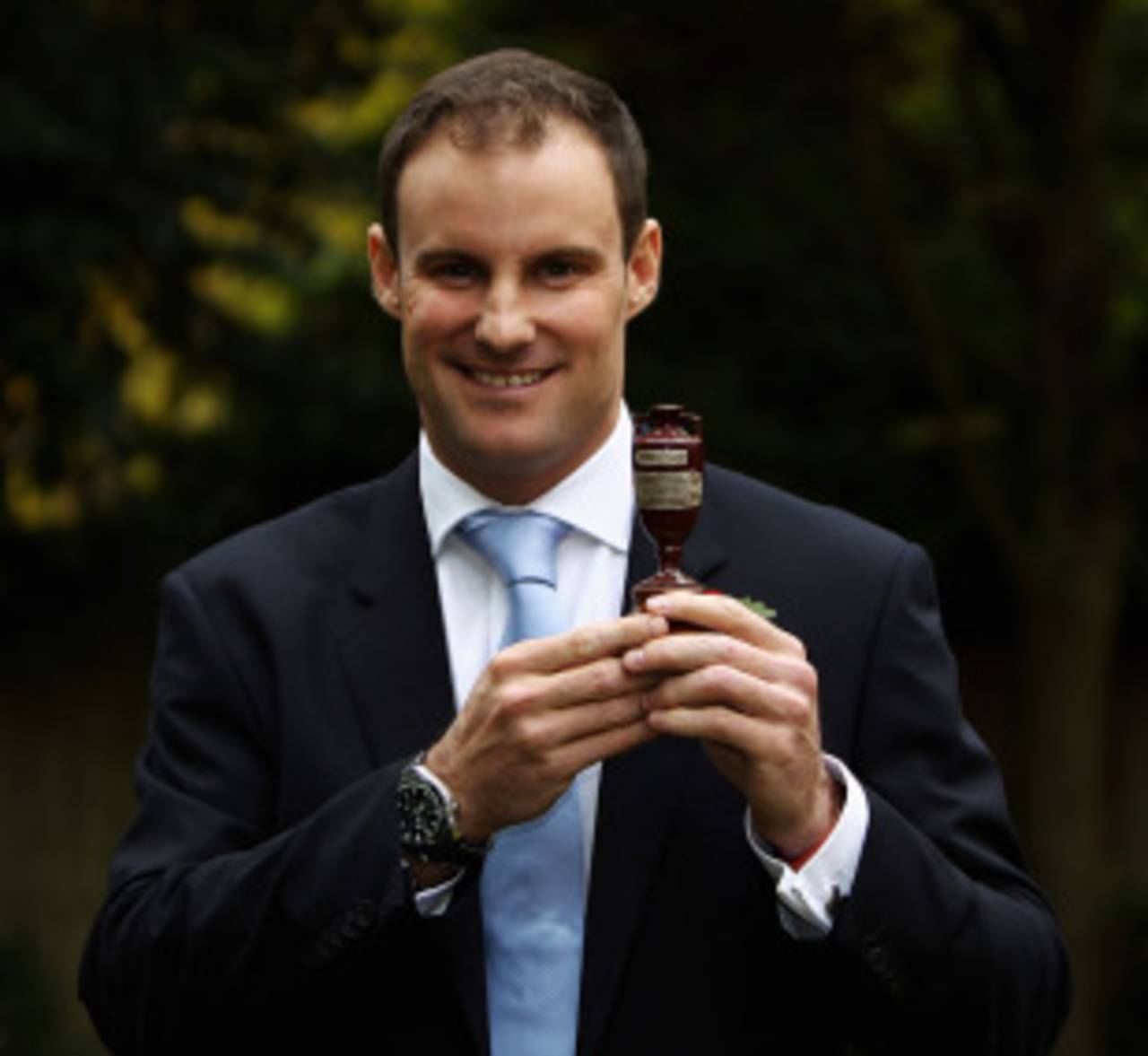The hollow words of Andrew Strauss
You knew another Ashes summer was upon us when England’s captain Andrew Strauss, in a moment of children-pushing-toy-submarines-round-a-bathtub inanity, said that for ten weeks and five Test matches two cricket sides would be “at war”
Christian Ryan
25-Feb-2013

Andrew Strauss: does he really believe what he says? • Getty Images
You knew another Ashes summer was upon us when England’s captain Andrew Strauss, in a moment of children-pushing-toy-submarines-round-a-bathtub inanity, said that for ten weeks and five Test matches two cricket sides would be “at war”. His jacket was pale blue, his tie a paler blue, and he said the words oh so coolly. That they were insensitive to millions in cricket-playing nations who have known and felt actual war went unremarked on by the gathered hacks in the Lord’s museum, who sat silent and unblinking as one of Douglas Jardine’s old neckerchiefs. That the words were hollow was made plain by all the other things Strauss had to say.
“If we can turn over those previous statistics…”
“If we go out and win…”
“I think we have a big chance…”
“We know what an amazing thing it would be to win…”
“This could be one of the greatest winters ever for English cricket…”
If, think, would-a and could-a are not battlecries. They are words of hope not trust. They are non-fighting words scripted by non-people, the PR jobsworths who demand that nothing be said to aggravate your opponents, nothing be said that might imply fear or frailty, until one big fat nothing is all we are left with. Strauss also said, “There is a great deep fundamental belief that we can go out there and win,” and this actually was revealing, for if it were true the first eight ugly words of that unwieldy sentence construction would never have entered his head. They could not possibly, therefore, have exited his mouth.
It’s uncanny how often a long Ashes tour is defined by the early words spoken. Or not spoken. Twelve years ago, fifties fast bowler Keith Slater tried welcoming all comers to the festival opener at Lilac Hill and got no more than two words out. He’d swallowed a fly. It lodged in his windpipe. England’s Ashes prospects went more or less down the gurgler with it.
Saying nothing much is nothing new. What can you say when the tugboatmen at the Fremantle docks yell at you, as they did at Gubby Allen’s Englishmen of 1936–37: “Have you seen Bradman’s latest – 212?” Ten years later Wally Hammond kept his men on the ship, not taking questions even from the fellow from the tabloids who commandeered a dinghy and rowed out to meet them. Stuck in more recent memory, and redolent of a tentative generation of visiting English cricketers, is captain Mike Atherton casting two saggy eyes around his first Australian audience, not so much spitting his words out as reluctantly uncaging them, in a murmur so low that those listening wondered whether their tape recorders would detect it.
There is another way. Almost forty years to the day, Ray Illingworth was given this parting message at Heathrow: the bookies have registered Australia as favourites.
“Put your money on England,” went Illingworth’s response. “If I were a betting man I would certainly back England to win. Taking everything all round, I honestly think we have the better side. There isn’t an opening attack in the world to compare with John Snow and Alan Ward.”
Illingworth talked big and won. And no England captain has regained the Ashes on foreign soil since. Strauss has only to retain them. Pore over the team sheets and his side looks a match for Illingworth’s and a leap in class above Ricky Ponting’s. England’s openers are more natural openers, the middle order less knackered, the spinner superior, the quicks more exotic.
But the words matter too. It’s from words that actions spring.
Christian Ryan is a writer based in Melbourne. He is the author of Golden Boy: Kim Hughes and the Bad Old Days of Australian Cricket and, most recently Australia: Story of a Cricket Country